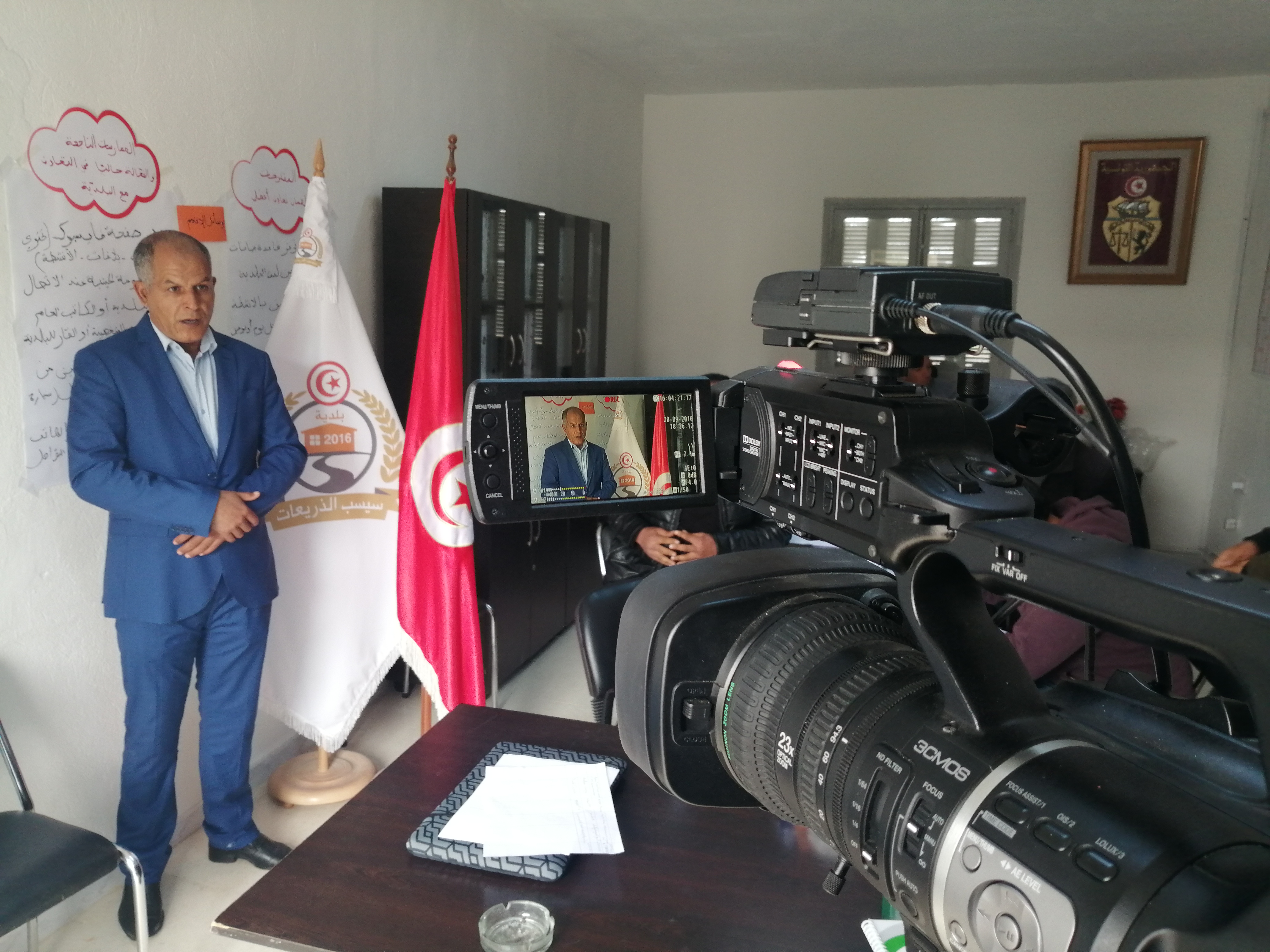After more than half a century in which the media were under government control, one of the first achievements of the 2011 Tunisian revolution was securing the independence of the press and the free flow of information. The media landscape was transformed as the Tunisians developed their new blueprint for society, which introduced into the 2014 Constitution the two key concepts of decentralization and participatory democracy. Against this backdrop of creating links in a polarized and long-muzzled country, the Fondation Hirondelle first became involved, between 2011 and 2016, after the fall of ex-president Ben Ali. We supported the reform of several regional channels of the Tunisian public radio to promote access to independent, reliable and useful local information.
Since 2020, our teams have been working to promote dialogue between citizens and governors within the civic space to facilitate a genuinely collaborative planning process around public action in newly created or isolated municipalities. In a consortium with the Danish organization NIRAS, the Fondation Hirondelle is implementing the media component of the PACT program (Participation Active des Citoyennes et Citoyens Tunisiens) for the ‘Active Participation of Tunisian Citizens’. This program, financed by the SDC, is part of the Swiss Cooperation strategy for Tunisia.
PACT’s overall objective is to strengthen local democracy within the framework of the decentralization process by promoting a structured dialogue about local government that involves all stakeholders. These thematic discussions aim to improve local living conditions, redefine collective local priorities, and build new relationships between municipal local government, decentralized government (regional directorates and government delegates), citizens and civil society organizations (CSOs). In this first three-year phase, our activities will focus on five governorates of the central region: Kairouan, El Kef, Siliana, Kasserine and Sidi Bouzid (representing almost 20% of the Tunisian population).
In concrete terms, seven municipalities have received support in organizing community forums to set up public interest projects addressing local priorities. On the back of these practical initiatives, the Fondation Hirondelle has created a sustainable network of 18 local journalists, including correspondents of the semi-state agency Tunis Afrique Presse. We aim to improve their knowledge and professional skills so that the media can really be instrumental in informing and monitoring public policies, leading to greater accountability, more dialogue and increased mutual respect – a quality at the heart of the project’s overall approach. To help young elected officials exercise their democratic mandate with greater autonomy, the Fondation Hirondelle has provided them with ‘media training’ sessions to equip them to create or consolidate a network of exchange between themselves and the press, favouring good public information and debate at the local level.


